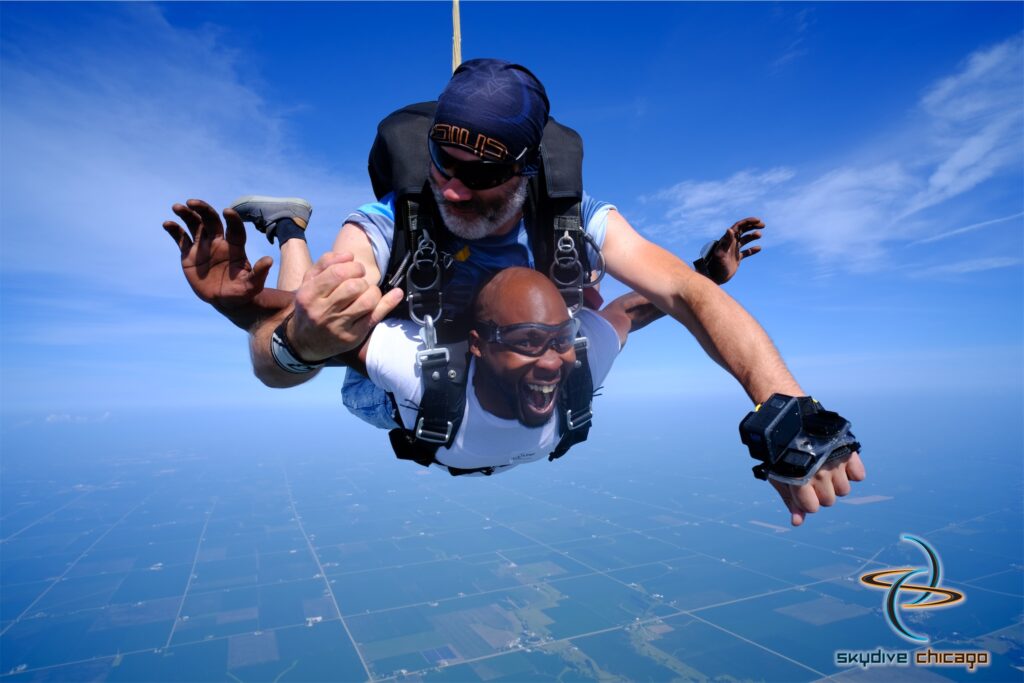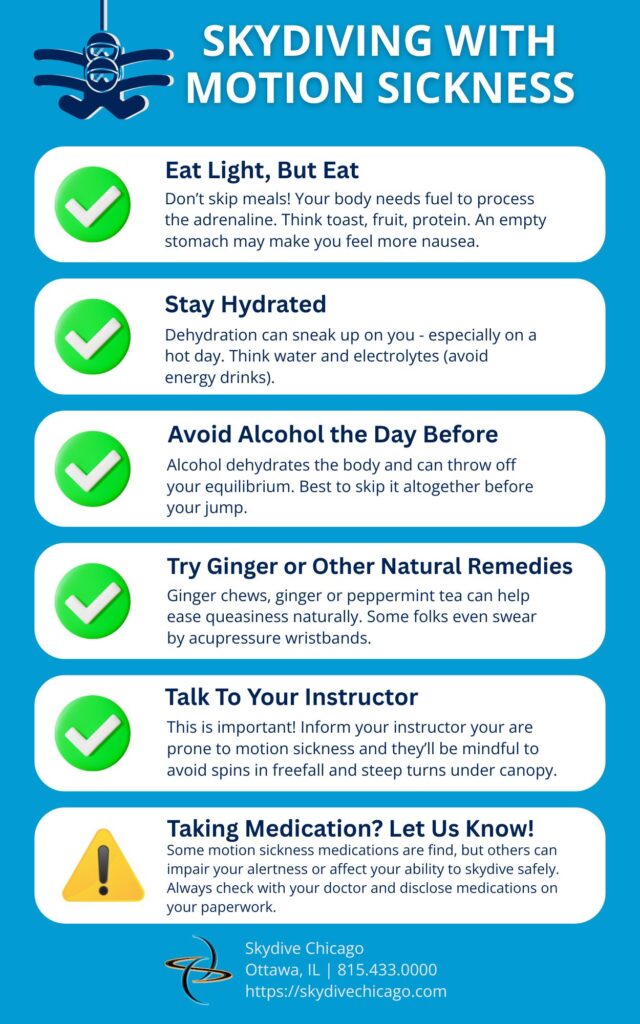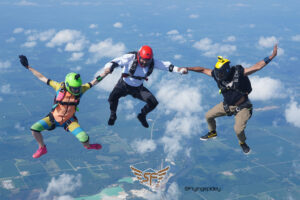We get it—just reading the words “motion sickness” might make your stomach flip. It’s more common than people think, and yes, it can happen during skydiving. But here’s the good news: it doesn’t have to define your experience or stop you from jumping.
In fact, we recently sat down with one of our students, Olivia, who faced this exact challenge head-on. Her first jump didn’t go so well—nausea, disorientation, the whole rollercoaster. But she didn’t give up. She adjusted, prepared, and came back stronger. Today? Olivia is a licensed skydiver and flying high.
What Is Motion Sickness Anyway?
Motion sickness happens when your inner ear (which helps with balance) sends signals that conflict with what your eyes are seeing. That mismatch can cause dizziness, nausea, and even vomiting. It’s common in cars, boats, VR games—and yes, skydiving.
How to Prepare for a Skydive If You’re Prone to Motion Sickness
You can still enjoy skydiving—it just means being a little more mindful. Here’s what we recommend:
✅ Avoid Alcohol the Day Before
Alcohol dehydrates the body and can throw off your equilibrium. Best to skip it altogether before your jump.
✅ Eat Light, But Eat
This is big. Don’t skip meals—your body needs fuel to process the adrenaline rush. We suggest light, balanced meals (think toast, bananas, protein). An empty stomach can make nausea worse.

✅ Stay Hydrated
Dehydration can sneak up on you—especially on a hot day. Water (not energy drinks) is your friend.
✅ Try Ginger or Other Natural Remedies
Ginger chews, ginger tea, or peppermint can help ease queasiness naturally. Some folks also swear by acupressure wristbands.
✅ Tell Your Instructor
This is so important. When you tell your tandem instructor or coach that you’re prone to motion sickness, they’ll take special care to avoid spins in freefall and steep turns under canopy. They can also talk you through breathing exercises and encourage you to focus on the horizon or a fixed point to ground yourself.
⚠️ Taking Medication? Let Us Know.
Some motion sickness medications are fine, but others can impair your alertness or affect your ability to skydive safely. Always check with your doctor beforehand, and disclose any meds on your waiver. We’ll help guide you from there.

It Doesn’t Have to Hold You Back
Olivia’s first experience wasn’t easy. But instead of saying “never again,” she asked, “how can I make this better?” By preparing differently and keeping open communication with her instructors, she turned a tough first jump into a triumphant return. And now, she’s part of our sky family—fully licensed and thriving.
Motion sickness might be part of your story, but it doesn’t have to be the end of it. With a few smart strategies and the right support, you can be smart about taking that leap.






